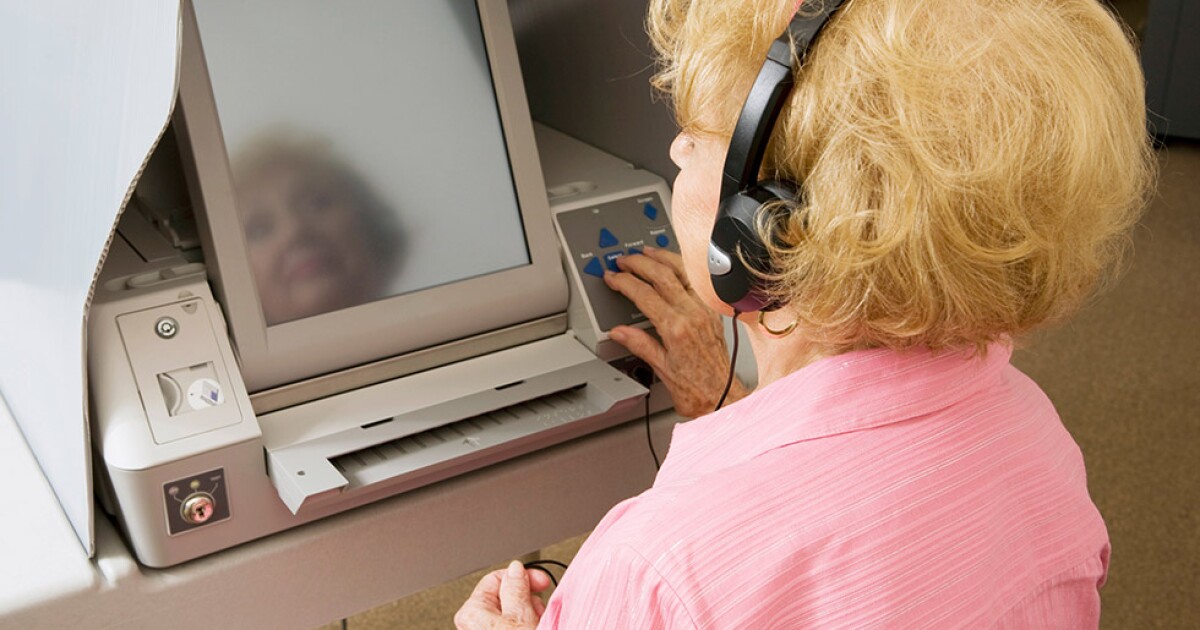Election officials across Northeast Ohio are preparing for Tuesday’s election, including coming up with plans to ensure people with visual or mobility impairments and those who speak languages other than English can exercise their right to vote.
A recent study found that between 2012 and 2020, the difficulties people with disabilities faced when voting nationwide dropped significantly. The study attributes this to an increase in mail-in voting, spurred by the pandemic. But with in-person voting resuming in 2022, the number of people with disabilities who reported having difficulty voting rose again. A Rutgers University study found that nearly one in seven people with disabilities experienced difficulties when voting in 2022, compared with less than one in 20 voters of the same age who do not have disabilities.
Voters with disabilities will be able to get help getting to the polls on Tuesday. Assistance is available in each county and varies.
Portage County election officials are being trained on how to deal with people, said Terry Nielsen, vice chair of the county elections board.
“We train [poll workers] “How we work with people who have physical and mental accessibility issues is key,” Nielsen said. “It’s up to voters to decide what kind of help is provided.”
Nielsen said that during early voting, people with mobility issues can go to the Portage County Board of Elections on Meridian Road in Ravenna and call the office from their car. A worker will bring them an absentee ballot to fill out. That form can be filled out in the parking lot, and then a poll worker will bring the ballot to them.
No application is needed to vote curbside at a polling place on Election Day, but people with disabilities must bring a carer and let poll workers know they need to vote from their car, Nielsen said, so poll workers can bring the ballot to the car.
Regine Johnson, vice chair of the Stark County Board of Elections, said poll workers in Stark County make various accommodations for people with disabilities.
Johnson said the polling places meet standards set by the Americans with Disabilities Act by taking into consideration uneven surfaces, table heights, accessible entrances, font size, etc. Each polling place also has designated curbside parking for people who cannot get out of their cars to the polling place.
“If you need accessibility equipment, just let us know when you check in and we’ll set you up with that specific machine,” Johnson said.
Special assistance may also be available to those who speak languages other than English.
In Cuyahoga County, certain polling locations have bilingual poll workers because they meet the required population threshold, said Mike West, community outreach manager for the Cuyahoga County Board of Elections.
“Once you get to a certain number of foreign language speakers — 5 percent of the population — you start to need accommodations for speakers of languages other than English,” West said.
Cuyahoga County only serves voters in Spanish. Summit, Stark and Portage counties do not meet the minimum language-speaking requirements to provide ballots in other languages or have bilingual poll workers.
Pete Zeigler, vice chairman of the Summit County Board of Elections, said a small number of area residents need help reading their ballots because of language barriers, but they usually bring someone to help interpret.
More information on how to get these and other accommodations will be included in the voter guide that will be printed in English and Spanish and sent to voters’ homes. Election officials said people who need accommodations can call their county elections board or ask poll workers on Tuesday.

